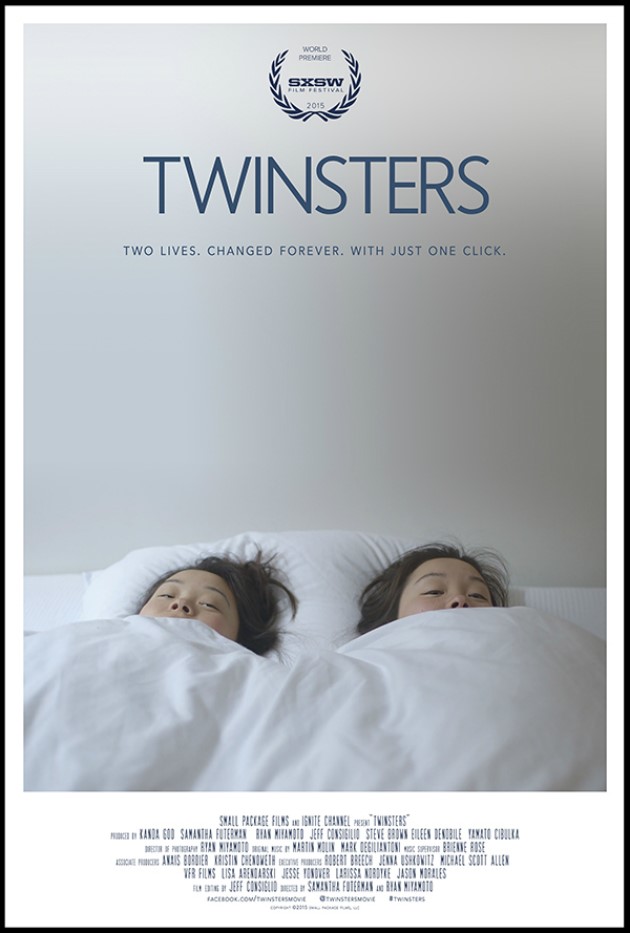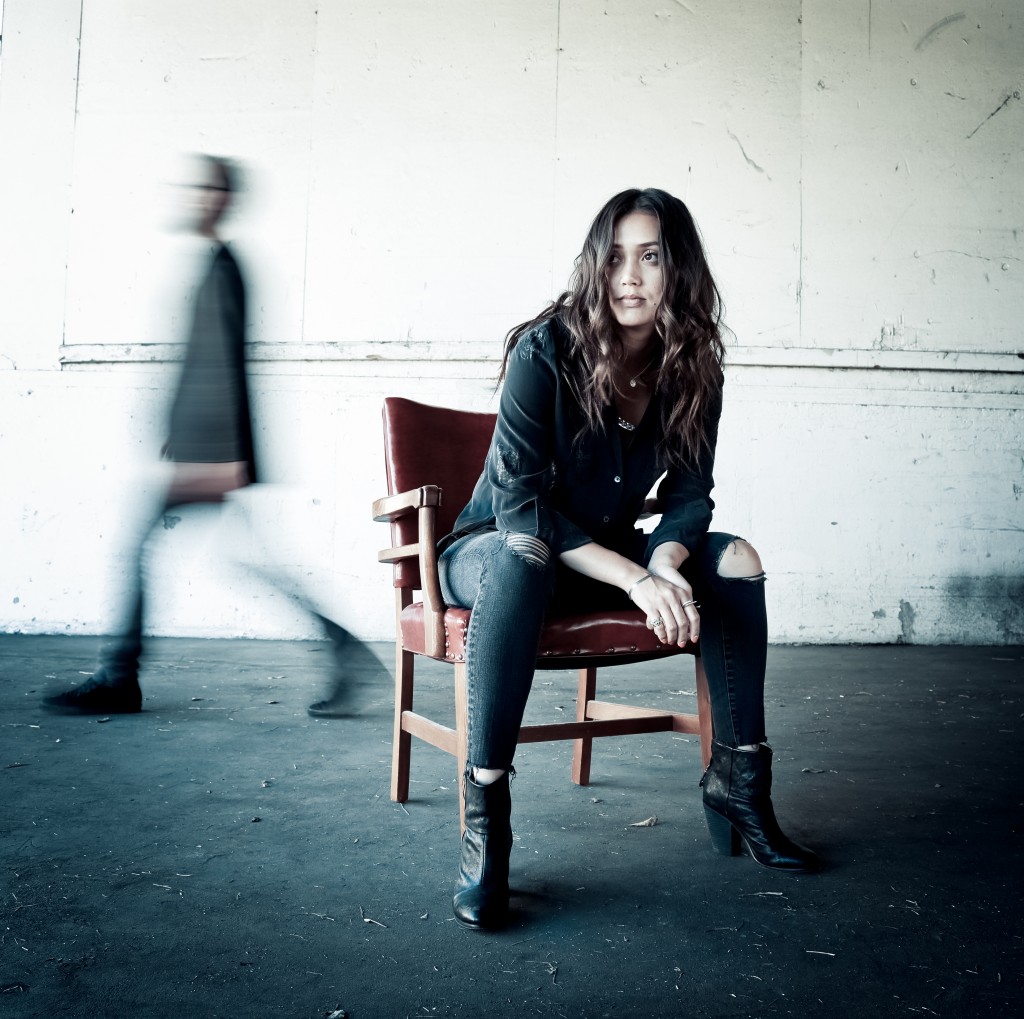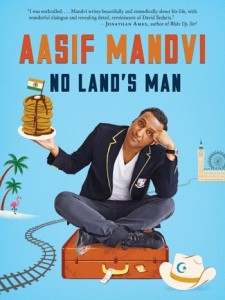Look, we’re just going to say it: Eugene Lee Yang is freaking awesome. On a recent trip to BuzzFeed’s LA headquarters, Kollaboration got to spend an hour with the one and only Eugene. During that time, we were able to learn that this self-proclaimed workaholic is a) a serious filmmaker, b) a staunch supporter of all things Asian American, c) absolutely not a fan of racist jokes, d) unfiltered about his views toward issues of diversity, and e) intensely eloquent.
Born and raised in Texas, Eugene grew up in a community where he and his family were the only Asian faces among a sea of whites, Blacks, and Latinos. To see any Asians he had to go to the Korean church, 45 minutes away by car.
As a child, Eugene was sensitive and introspective, and often expressed himself through artistic outlets: from visual arts and illustration, to theater, choir, and dance. Pursuing film wasn’t on Eugene’s radar. “I kind of considered it as a rich white person thing because that’s all that was on screen,” he says. In seventh grade, a teacher recommended that he consider film as a serious profession. He took the advice, and even at a young age, had his sights set on the University of Southern California’s prestigious School of Cinematic Arts.
He graduated from USC with a production degree in 2008, and then spent 5 years mostly working freelance and making commercials and music videos. (Check out some of his other work on the website of his production company, The Menagerie.) In 2013, Eugene joined BuzzFeed Video after being referred by a colleague who believed in his talent for creating engaging short-form videos. And the rest, well, we’ll let him tell you himself. Here are 23 things Eugene had to say about his life, his insights on media, his work with BuzzFeed, and Asian American representation:
1. Getting in front of the camera was never a thing I actively volunteered for. It wasn’t because I was a good actor, or that I was funny on screen. It came down to a simple decision that we need more diversity on screen. And that’s all it takes, is to say, “There’s an Asian guy here, throw the Asian on camera.”
2. People think my ego has inflated so much more since I’ve been on screen, but it’s not true. It’s been completely compacted into this small, determined, straight-forward, objective-driven mission, which is to be part of something that is much larger than myself.
3. I never seriously considered myself as an actor. I wanted to impart change through my perspective, in my writing and my director’s voice.
4. I realized there was more impact with my face in the scene, than strictly being a director. Which was a hard pill to swallow for someone who was very serious about filmmaking for very long time. But now I get to control the voice of the piece, while being the face of the piece.
5. I’m not quite aware of this success people talk about until people recognize me on the street. I get that a lot. Some people just yell “Asian BuzzFeed guy!” and I turn around and distinctly yell back “Eugene!”
6. I was always the ugly kid. Always. So when people said they liked me, I was like “oh do you like…my brain?” Because I was always made to believe that I’m just like white people, only I looked different, which disqualified me for a lot of things, like being in the spotlight and in front of the camera.
7. These days, you don’t produce things to just creatively masturbate. You want to create something that people can share for a very long time. And that’s the challenge for any online video producer to understand, is that we are part of a much larger conversation.
8. Here’s the difference between traditional film and internet viral videos: The conversation sort of stops for filmmakers once the product is out. You devise a project as a statement, and it’s there for the public to digest and discuss. With an internet video, you instead conceive them to be part of an ongoing conversation. With my recent video about women’s ideal body types throughout history, for example, what we could do was create something that added a different perspective to the subject, so that people can respond and discuss the issue in an intelligent manner.
9. I have a lot of videos I haven’t released because I realized with where I am now, as this sort of media figure, what I potentially represent for young Asian Americans is much more important than me creating my own art that could possibly be very divisive.
10. I did a video: Awkward Moments Only Asians Understand. And I realized it did so well because the comedic tropes for the Asian community haven’t changed for over 30 years. It dawned on me that this was an issue for the Asian community at large. Being the invisible middle is like you’re open hunting season for jokes.
11. A lot of well-known Asian comedians, a lot of their routines play into the Asian stereotypes because it’s what the audience laughs at, because it’s always been okay to laugh at. You say “ching chong” and you get a huge laugh out of it. A mission of mine is to start yelling at people who laugh at those things. You just need someone to tell people that it’s still very harmful for young people to see these stereotypes.
12. It’s tired. It’s boring, and I get really unimpressed. A lot of times I go to a comedy show, I sit there and wait for the comedian to run out of ideas and look at me and make an Asian joke. I tell my friends still, constantly, to shut up when they make Asian jokes. No. Shut up. I don’t care. Don’t do that around me.
13. Now you get people who have this colorblind perspective, which is equally harmful. We can’t have people saying that we are all the same, because we’re not.
14. We tend to forget that our parents came here with nothing and worked hard for their success. Other people think we’re upwardly mobile, that we’re just like white people. And it’s like, no we’re not. Most of us are children of immigrants. We didn’t come here with bags of money.
15. The assumption that it’s just okay to make fun of a community that they think is doing fine is bulls–t.
16. When people say, “I was a slacker in high school, I smoked a lot of pot, so it makes me a cool Asian.” I’m just like, “I don’t care.” Sure, that’s great, you do you, but don’t think yourself as less Asian because of it. There are a s–t ton of Asians who smoke pot. You can’t be an Asian American and be proud of your non-Asian-ness.
17. People think that everything comes down to old rich white men. They’re not the common denominator anymore. The future is changing every single second, so you’re either going to ride that wave and be on top of the game, or still be scratching some white guy’s door in ten years and be behind the curve.
18. We need more people who push for not only equality but diversification within diversity. People bring up that we have supporting characters on television now, like, “It’s not just the sassy Black receptionist, but there’s like an Asian friend who works there, too.” But no. We need Asian male romantic leads. We need Asian girls who are comedy leads.
19. Right now is the first time in history where there is a rebuttal to a one-sided argument, and BuzzFeed is at the forefront of this wave, of young creatives being able to represent themselves in the way without fear of repercussion that could be violent.
20. I’m always shocked at how little we are represented on film and TV. It’s as if our stories are not controversial, or staggeringly painful enough for the older white audience to pat themselves on the back to say, “Oh, I learned something; I feel bad for what we did in history.” Even though we were on the railroads and in the internment camps. But we’re not white-looking enough to be the leads. That’s always been the issue.
21. It’s supply and demand. Most Asian Americans, like myself, as a child, did not see either supply or demand of Asians on television. Now casting directors are using the bulls–t excuse of there not being enough demand, because they’re making less demand for it, so then we don’t see opportunities for ourselves, and we don’t try. I would never have supplied myself as an actor if I didn’t join BuzzFeed.
22. The great thing about the proliferation of K-pop is that it puts Asian faces out there. Adjusted, but still Asian faces. If it’s even one small town girl who is now obsessed with supporting Asian culture, then more power to them!
23. We have the right to be angry about our representation in the media. It’s just not a reflection of how we live our daily lives. It’s not even a reflection of the general audience and how they live their daily lives. Teenagers these days have very diverse groups of friends. There’s a reason we all cried when Gina Rodriguez won that Golden Globe. It didn’t matter if we’re Latina. We get it. We’re just like, “Thank you! Finally, a more accurate reflection of diversity!”
Photo courtesy of Eugene Lee Yang





